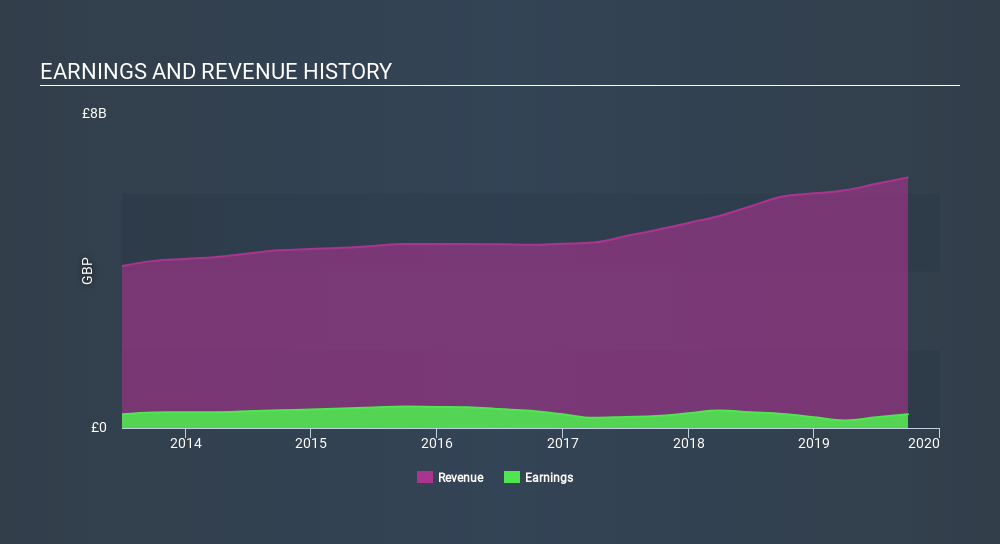- United Kingdom
- /
- Airlines
- /
- LSE:EZJ
Was easyJet plc's (LON:EZJ) Earnings Decline Part Of A Broader Industry Downturn?

Analyzing easyJet plc's (LSE:EZJ) track record of past performance is a valuable exercise for investors. It enables us to reflect on whether or not the company has met expectations, which is a powerful signal for future performance. Today I will assess EZJ's recent performance announced on 30 September 2019 and compare these figures to its long-term trend and industry movements.
Check out our latest analysis for easyJet
Was EZJ's recent earnings decline worse than the long-term trend and the industry?
EZJ's trailing twelve-month earnings (from 30 September 2019) of UK£349m has declined by -2.5% compared to the previous year.
Furthermore, this one-year growth rate has been lower than its average earnings growth rate over the past 5 years of -13%, indicating the rate at which EZJ is growing has slowed down. What could be happening here? Well, let’s take a look at what’s transpiring with margins and if the entire industry is experiencing the hit as well.

In terms of returns from investment, easyJet has fallen short of achieving a 20% return on equity (ROE), recording 12% instead. Furthermore, its return on assets (ROA) of 4.7% is below the GB Airlines industry of 4.8%, indicating easyJet's are utilized less efficiently. And finally, its return on capital (ROC), which also accounts for easyJet’s debt level, has declined over the past 3 years from 13% to 8.5%. This correlates with an increase in debt holding, with debt-to-equity ratio rising from 17% to 45% over the past 5 years.
What does this mean?
easyJet's track record can be a valuable insight into its earnings performance, but it certainly doesn't tell the whole story. Usually companies that experience an extended period of decline in earnings are undergoing some sort of reinvestment phase However, if the whole industry is struggling to grow over time, it may be a sign of a structural change, which makes easyJet and its peers a riskier investment. I recommend you continue to research easyJet to get a better picture of the stock by looking at:
- Future Outlook: What are well-informed industry analysts predicting for EZJ’s future growth? Take a look at our free research report of analyst consensus for EZJ’s outlook.
- Financial Health: Are EZJ’s operations financially sustainable? Balance sheets can be hard to analyze, which is why we’ve done it for you. Check out our financial health checks here.
- Other High-Performing Stocks: Are there other stocks that provide better prospects with proven track records? Explore our free list of these great stocks here.
NB: Figures in this article are calculated using data from the trailing twelve months from 30 September 2019. This may not be consistent with full year annual report figures.
If you spot an error that warrants correction, please contact the editor at editorial-team@simplywallst.com. This article by Simply Wall St is general in nature. It does not constitute a recommendation to buy or sell any stock, and does not take account of your objectives, or your financial situation. Simply Wall St has no position in the stocks mentioned.
We aim to bring you long-term focused research analysis driven by fundamental data. Note that our analysis may not factor in the latest price-sensitive company announcements or qualitative material. Thank you for reading.
About LSE:EZJ
Proven track record with adequate balance sheet.
Similar Companies
Market Insights
Community Narratives



